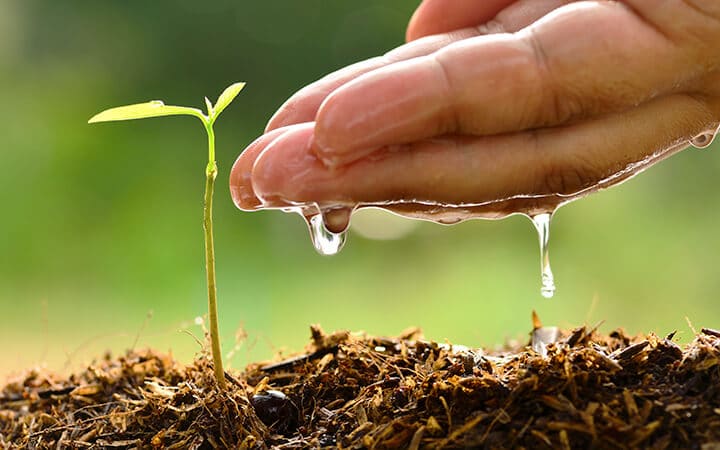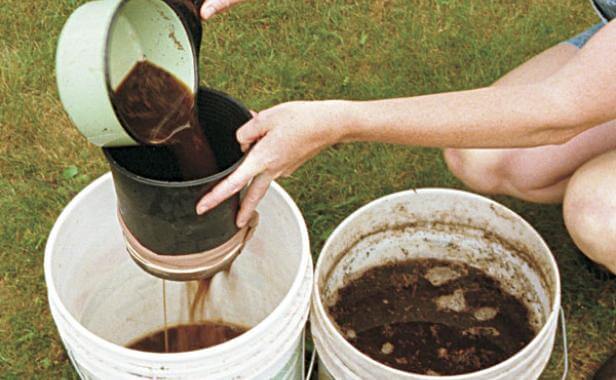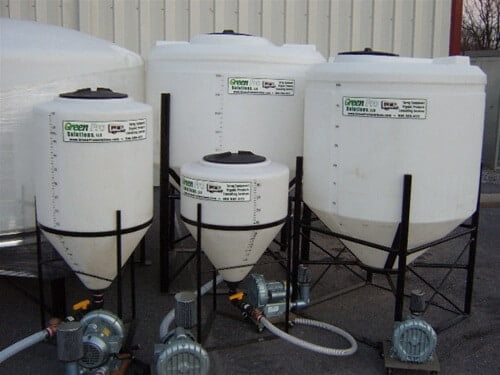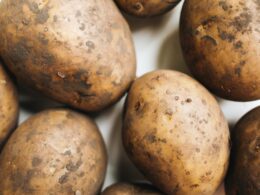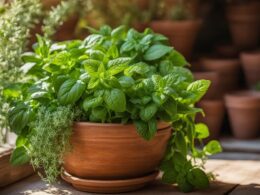No matter what you plant in your garden, compost is always going to help you get a healthier harvest each time. There’s more than one way to provide your plants with compost. You can do it the old-fashioned way, by surrounding them with compost, or you can brew some compost tea and make sure your plants get the best possible treatment with little to no effort on your part. Because we want to help you protect and feed your plants, we’ve prepared a short introduction to compost tea and a couple of different ways of making your own at home.
What Is Compost Tea?
Compost tea is tea that you get by brewing compost. The brewing process extracts nematodes, bacteria, protozoa, and fungi from the compost. This guarantees that your plants will become healthier in no time. There are multiple types of compost tea that you can make, depending on the compost that you use. Still, if you’re interested in extracting all the elements we mentioned above, you should use a type of compost that contains them and then make the so-called actively aerated compost tea.
Depending on the type of compost tea that you want to make, the things you’re going to need differ as well. Moreover, there are other factors that also contribute to the way the compost tea will help your plants. Some factors include the length of time you brew the tea for, what the temperature of brewing is, what ingredients you add to it, and so on.
How to Make Your Own Compost Tea
1. Mature Compost
The first type of DIY compost tea that we would like to mention is made out of mature compost. This is compost that has decomposed sufficiently. Before getting into the steps of making this type of tea, we should mention that this method lacks oxygen. What this means is that it could give birth to anaerobic pathogens. Because of this, we advise you to use gloves and a mask when brewing the tea.
The first step to making this type of compost tea is to place your mature compost in a container. Make sure the container is half to two-thirds full. Then, add water on top of it until there’s no more room left. There are several ways in which you can help the tea brew. For instance, you could leave it like that for 24 hours, making sure you agitate the container a couple of times. If you want to wait for less (8 hours), just agitate it more often. Another method would be to place the compost in a sack that you suspend over a water container. What you have to do in this case is agitate the liquid every day for about a week. Then, you’re free to use the tea.
When it comes to actually using compost tea, this is extremely easy to do. Once the liquid is light amber, you can decant it in a spray bottle for easy use. Then, use it on your plants (no matter the type) to provide them with a tonic boost. Remember that you shouldn’t use compost tea in very cold or very warm weather. So if you want to spray it in summer, you’re going to have to do that in the morning.
One of the greatest things about this type of compost tea is that you can make a lot of it using just a small amount of compost. That’s because you can resoak old compost and only add a little bit of new one each time.
2. Leafy Compost
The second compost tea recipe that we have prepared for you today is perhaps one of the easiest ones to follow as well. All you need in order to brew the tea are some leafy greens such as nettles, comfrey, or even seaweed. After you’ve gathered the greens, you have to fill a container with water and add them there. Once they’ve rotted, you can use the mixture to pour around your plants. While this doesn’t exactly have a tea consistency, it serves the same purpose as compost tea.
If you don’t want to wait for a long time until the leaves are decomposed, and you’d like to speed up the process, you can always place the greens in a blender first. Then, add some water, tea, coffee, or any other vegetable-based beverage over them. Mix well until you get a smooth liquid. The final step is to use the mixture around your plants.
3. Fast Compost Spray
Yet another compost tea that is extremely fast to make and effective for ensuring your plants don’t get any diseases, this one only requires about 2.2 pounds of compost placed in a container. What you have to do is place this container into another one that you’ve filled with water. After stirring for about 15 minutes, feel free to fill a spray bottle with the resulting liquid. Then, use it on diseased plants or seedlings.
4. Aerated Compost Extract
As we’ve already mentioned, the best way to make sure the compost tea you brew at home provides your plants with all the beneficial microbes they need is to prepare an aerated compost extract. Still, you have to remember that this is a more time-consuming and intricate procedure. The reason why this technique is called aerated compost extract is because the first thing you have to do is aerate the compost that you’re going to use to brew the tea. The problem is that it’s not enough for you to turn the compost once before using it. You have to constantly turn and aerate it in the time it takes it to completely decompose.
Another thing that you can do in order to make sure the compost has plenty of materials that serve as a carbon source is to add sawdust, leaves, or clean cardboard to the mixture. If you can get your hands on some forest soil, don’t hesitate to add it as well. This can increase the number of beneficial fungi in the compost tea. Before your compost is ready to use, you have to remember three key things: it has to be well aerated, it has to be fully matured, and it has to have a sweet smell.
When all of these three requirements are fulfilled, you can take between 1.3 and 2.6 gallons of the resulting mixture and place it in a 5.3-gallon bucket. Then, add water until the bucket is almost full. The next step is to add 8.4 ounces of unsulphured molasses. Stir them into the mixture until you can’t tell the difference between the two substances anymore.
You should leave the mixture to steep for about 3 days. During this time, you’re going to have to use a wooden spoon to stir every now and then. Make sure to go all the way down when you mix. The goal is to lift the compost pieces and have them float in the liquid instead of resting on the bottom of the bucket. One of the most important steps when making an aerated compost extract is to make sure the oxygen levels are properly maintained in the tea. You can do that with the help of an aquarium pump that comes with three air stones. This is an easy setup and a cheap alternative to the commercial brewers that you can purchase on the market.
If you’re wondering how you can tell when the compost tea is ready to be applied to your plants, the answer is that it has to have a sweet smell and just a little bit of mustiness to it. If the tea smells to much like alcohol or otherwise unpleasant, you might want to add some more molasses and an extra air stone to the pump. Also, remember that while the tea is brewing, the pump has to be on at all times.
You can use the resulting tea with a watering can or a spray bottle. Just make sure that before you drain it from the container, the liquid is settled. Perhaps the most important thing to remember is that once you take the tea out of the oxygenated container, you have about 1 hour to use it before it turns ineffective. If you manage to use it right, the high oxygen levels will battle diseases and dangerous bacteria in your garden.
5. Buy Compost Tea
If you’re not keen on making your own compost tea, you can always purchase some from commercial sources. For instance, allow us to recommend you a couple of options, such as the Organic Plant Magic Instant Compost Tea, the Super Compost Tea, the Bu’s Brew Biodynamic Compost Tea Bags, and the Botanicare Pure Blend Tea Soluble Compost Tea, all of which you can find on Amazon.
All in all, we hope today’s guide was useful in informing you of the main compost tea benefits and the top ways in which you can brew your own, as well as providing you with some of the best compost tea brands that you can purchase online.





